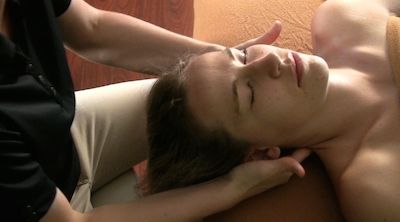
In a previous blog, Greg Hurd explained Why Position Statements Matter. Here Delegates Regine Ryder and Cynthia Sykes examine one position statement being brought to the House of Delegates at the National Convention. We encourage your comments and thoughts below this post!
Proposed position Statement: It is the position of the AMTA that massage therapy can improve health and wellness through its effects on the physical, mental and social well-being of an individual. You can read the full text here.
The authors again refer to the WHO definition of health: Health is a state of complete physical, mental and social well-being and not merely the absence of disease or infirmity.
The authors say that massage therapy has a positive effect on the physical, mental and social well-being. Does their presentation of research and references show enough proof to support this statement?
There are several references to the definition of Quality of Life. All of them state that this expression is hard to define and very objective. The way they define it, you could say that it goes closely with “Well-being”. This seems to be proof of their statement. The Health definition is however to the authors the same as the WHO: Physical, Mental, and SOCIAL well-being. The position statement would then read that "Massage therapy can improve physical and mental and social well-being and wellness through its effects on the physical, mental and social well-being".
And while the authors seem to support WHO’s definition of “health”, WHO does not address “wellness” in their definition. It seems misleading that the WHO definition for Health, the basis for this definition, has been morphed to ‘wellness’’ which is not addressed by WHO. We feel that “wellness” and “social well-being” are not necessarily the same thing. One reference that defines wellness, shows the effects of dental work and restructuring in patients with dental and/or facial deformities. Massage Therapy does not deal with those issues.
The authors present many studies that prove the effects of massage on physical (pain, stress, blood-pressure, burn scars, ) and mental well-being (depression, anxiety, sleep, stress).
Four studies point to effects on social well-being , which is defined as: Social well-being relates to one's ability to participate in society, fulfilling roles as family member, friend, worker, or citizen or in other ways engaging in interactions with others.
The first study looks at stress in an office setting. This is an older study and as such not seen as proof. This is also obvious for a study on juvenile inmates and aggressive behavior. Two new studies look at dementia, one is a preliminary study and the second has a very small pool of subjects.
We suggest that the authors submit position statements on physical and mental health, both of which are well supported through their references and present more research for the support of social well-being.
Respectfully submitted,
Regine Ryder and Cynthia Sykes
Image courtesy of ryanhoyme.com
